一體成形零廢料 3D編織環保鞋打破「快速時尚」
文字大小
112 4 Share1
本報2016年8月31日綜合外電報導,范震華編譯;賴慧玲審校
寶特瓶回收製鞋不稀奇,製程零廢料就很不簡單。美國舊金山一家新創公司Rothy's透過3D編織(3D-knit)專利技術,只需短短六分鐘,就能將回收寶特瓶輾碎、抽絲而成的再生纖維,打造成透氣、不磨腳的「無縫鞋」。
Rothy's的技術不但大大減少製程中的材料浪費,鞋款更可依客戶需求量身打造,有望揮別過去大量生產,再由廠商拼命行銷來出清囤貨的「快速時尚」!
Rothy's 鞋子組成示意圖。圖片來源:Rothy's 提供。授權方式:media use。
「製鞋過程通常會產生非常大量的廢料,最後也只會丟進垃圾掩埋場。」Rothy's 公司的共同創辦人兼創意總監馬丁(Roth Martin)表示。這間新創公司致力於做出比市面上的鞋子更好、更永續的產品。在不斷試驗的過程中,他們發現3D編織技術可以在製程大大減少材料浪費。
「我們可以精準地控制原料的使用量,沒有任何廢料,就像噴墨印表機一樣,只會使用完成工作所需要的墨水量,然後再進行下一個同樣的工作。」馬丁進一步說明。
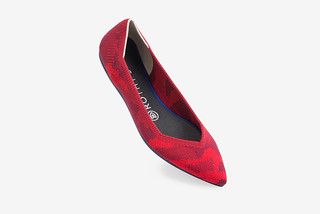 | 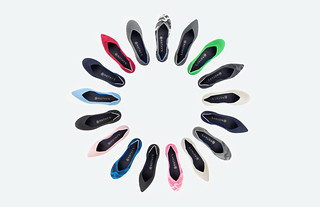 |
| 這隻鞋在兩個星期以前,還只是三個寶特瓶。圖片來源:Rothy's 提供。授權方式:media use。 | Rothy's 鞋子雖然造型簡單,但已生產出不同顏色的款式。圖片來源:Rothy's 提供。授權方式:media use。 |
捨棄鞋帶、扣子 3D編織熨貼你的雙腳
這個過程有點像耐吉(Nike)近年力推的輕量化飛線編織(Flyknit line)系列(當 Rothy's 研發這項技術時,飛線編織系列尚未問世),只是耐吉的鞋子是以2D編織法製成,Rothy's 則是用3D編織技術,直接透過機器讓鞋子一體成形,不需靠人工組裝縫製。如此更能有效減少廢料產生,而且還能捨棄傳統的鉚接、鞋帶、扣子等配件,讓鞋子舒適地熨貼雙腳。
這雙3D編織而成的無縫鞋,一共只用了三種材質——表布和鞋墊以寶特瓶纖維製成,鞋墊再貼合在以再生泡棉製成的鞋底上,鞋跟則是用橡膠材質製造。
雖然每雙鞋定價125至145美元(台幣約4000至4500元),價格偏高,但馬丁認為,就「好的跑鞋」來說並不算貴,若是進一步把使用年限納入考量,它還比大型連鎖鞋店裡只要40美元但穿幾次就壞掉的鞋子來得划算。
這種鞋子還有其他優點。根據時代雜誌(Time)記者史坦梅茲(Katy Steinmetz)的實測心得,由於無縫鞋是編織而成的,所以能像網子一樣透氣。如果弄髒了,也能直接丟進洗衣機,洗加烘了數次之後,依然如新。此外,3D一體成形的外型讓鞋子內部平滑無縫,穿著跑也不會磨腳。
製程、原料單純 需求為導向減少浪費
以往製鞋業需要將各種樣式的鞋子大量生產來降低成本,為此,廠商也必須多製備原料。相反的,無縫鞋可以依照客戶需求來限量製作,不需要大量生產後,再拼命行銷來出清囤貨。
「廠商只需要在顧客下訂的時候製鞋,而不是在需求出現之前就把鞋子做好。」羅斯表示,「我們認為未來是以需求為導向的時代,這將取代時尚和大眾鞋業的傳統產銷循環以及快速汰換的消費模式。」
Rothy's 鞋子看起來就和一般的鞋子無異。圖片來源:Rothy's 提供。授權方式:media use。
目前無縫鞋要大量生產,還有一些挑戰尚待克服。儘管基本製作流程已經確立,但Rothy's 的設計師花了八個月的時間,仍未能成功地在美國打造出無縫鞋的供應鏈。
另一方面,該公司的中國廠正嘗試將太陽能板融入鞋子設計中,進一步提升鞋子的永續表現。根據Co.Exist網站報導,在基本流程確立後,後續研發變得更容易,Rothy's 將繼續研發新鞋。羅斯說,「這真的就像電腦軟體一樣,只要移動幾個像素、稍微改變幾個編碼,就能變出各種新花樣。」
編註:回收寶特瓶再製成生活用品的案例在台灣也有不少,其中不乏有標榜製程確可減少碳足跡、水足跡的產品。但這類從回收物變身的產品,仍可能存在一些隱憂。2014年國際環保團體也曾撰文提醒,「再製的衣服淘汰後的處理與回收方式尚未有相關配套措施或規範,任意丟棄可能反而造成另一個污染問題。」
至於我們的生活是否存在「最友善環境」的選擇?推薦閱讀《哪種容器最環保? 因地而異的課題》此篇報導。
※ 本文轉載自環境通訊網
【相關文章】
【參考資料】
- Time(2016年7月5日),This Company Is Selling the Most San Francisco Shoes Ever
- Co.Exist(2016年7月11日),These Shoes Are Knit From Recycled Water Bottles
This Company Is Selling the Most San Francisco Shoes Ever

They're ecologically sound, high-tech and might give you affordability problems
Roth Martin really wants to make it clear that he tried to make his company’s shoes in America, though he says the necessary tools just aren’t here. That is, after all, one of the few zeitgeisty claims he can’t make about the flats being sold by his new San Francisco-based footwear company, Rothy’s.
While a millennial might frown to read the “Made in China” label on the insole (and one imagines it keeps Martin up at night like raccoons in the attic), they tick a long list of other boxes. Rothy’s shoes are recyclable and made from recycled plastic bottles, knitted in six minutes with the guidance of waste-minimizing software, and as comfortable yet office-appropriate as any $125 pair of kicks you’re likely to find. They are very San Francisco in 2016.
“With a computer program, we were able to write a pattern that basically uses this fiber exclusively,” says Martin, holding an electric-blue thread that was once a beverage container and will soon be on someone’s feet. “People expect products to be good, but they also expect the company to do good,” he says. “We certainly think that’s the future.”
Roth and his cofounder, Stephen Hawthornthwaite, are entrepreneurs more than feet enthusiasts, men who came to found the company out of the desire to run a consumer brand of no definite type. After years of research and soaking up inspiration from companies like TOMS and Patagonia, they settled on shoes and set up headquarters in the back of Martin’s tony design gallery in Jackson Square—the type catering to people who would, in the right set of circumstances, pay $24,000 for a chair.

For now, the shoes come in only two silhouettes and several colors, a limited palette that Martin says speaks to their emphasis on simplicity, another toast to times in which trendy fashion companies pursue perfection in the form of white T-shirts. “Less is becoming less and meaning even more,” Martin says.
Though the price tags—$125 (round toe) and $145 (pointy toe)—will certainly seem high to some, Martin sees it as the equivalent of a “good running shoe.” And there is a cost-per-use argument to be made for people, like myself, who tend to hunt for $40 bargains in the hinterlands of the local DSW.
Because the shoes are knitted, they breathe like mesh. And when you do manage to get them dirty and sweaty enough, you can throw them in the washing machine. After a couple washes, a pair I was given for free to test out came out of the dryer much the same as it came out of the box. Because the flats are “3D knit to shape,” with the whole top coming out in a single piece, there were no seams or raw-rubbing surfaces that sent me running for the Band-Aids either.
On the table at HQ in June are designs Rothy’s is playing with for fall. Python and snake patterns. Subtle luggage strips and racing stripes. A knitted skull and a mockup of a shoe decorated with SoulCycle branding, a telling test of partnership given that outlet’s success with affluent, metropolitan young women. For those weary of the zeitgeist, in which consumers pay $35 to rage in the dark on stationary bikes, $125 recyclable plastic shoes might seem too on trend. But there’s also something to say for shoes that are so pleasant on the feet that you forget you are wearing shoes at all.
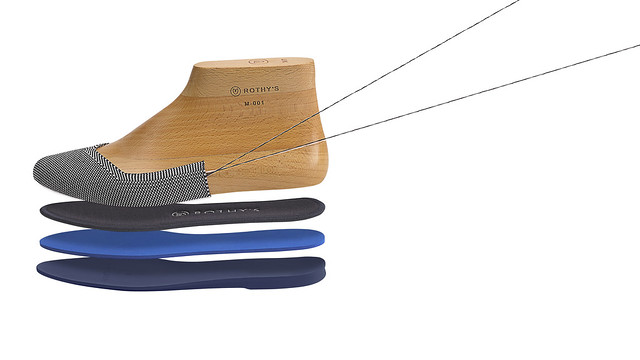
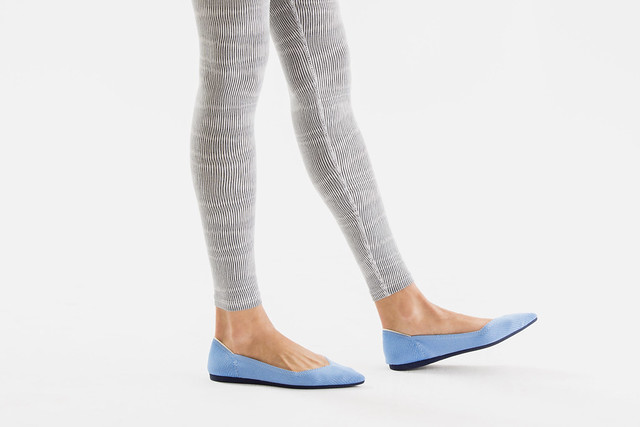

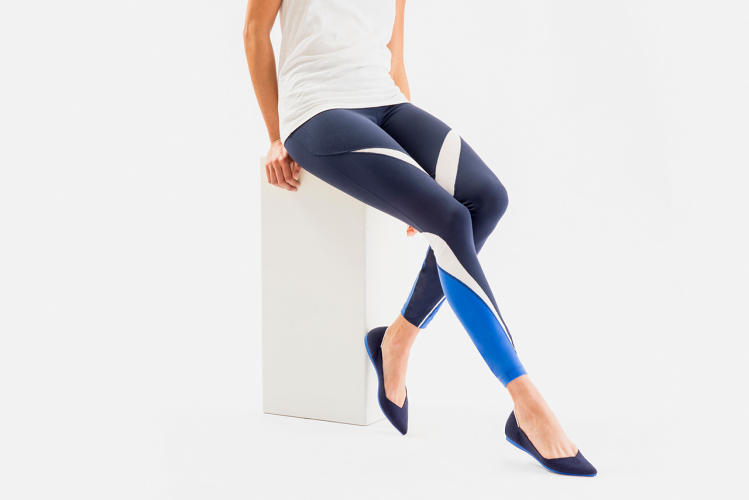



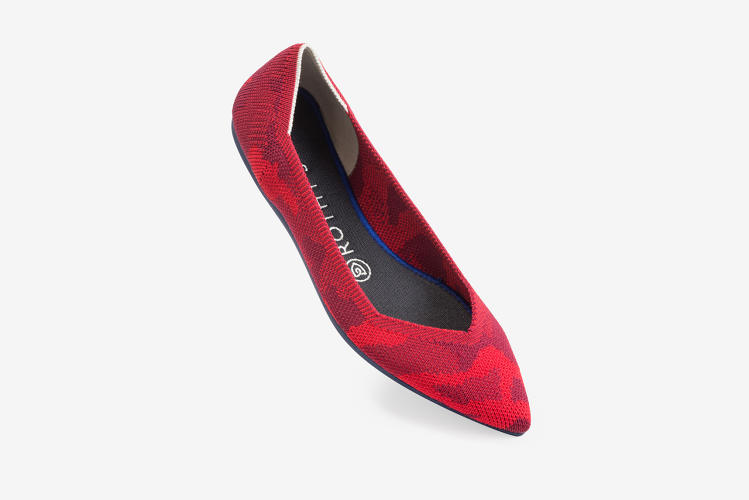



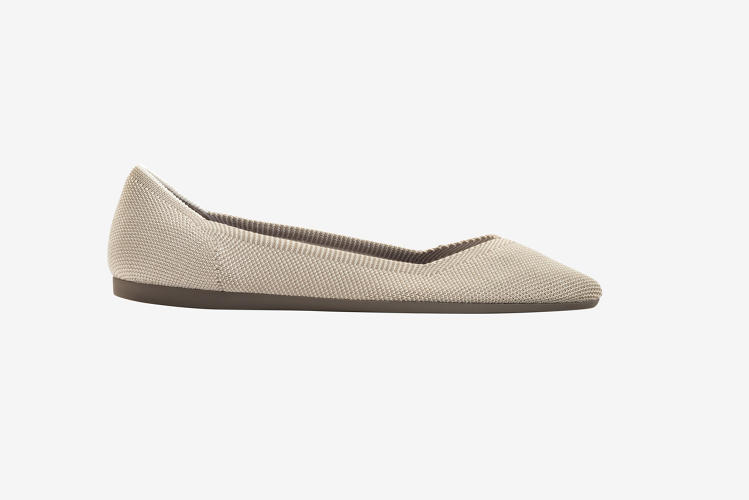





沒有留言:
張貼留言